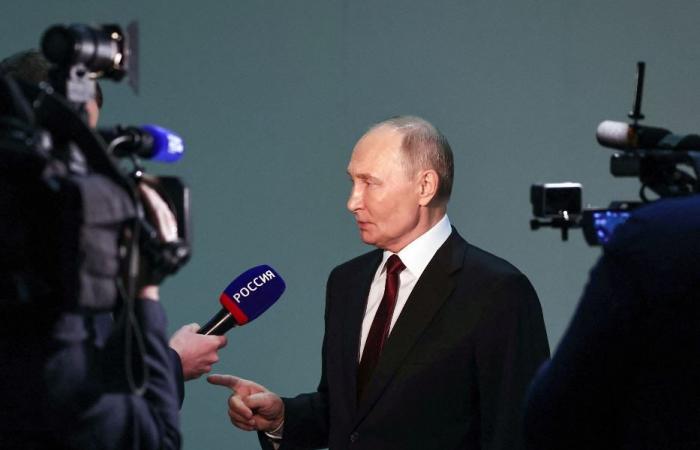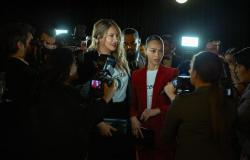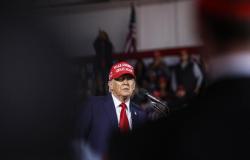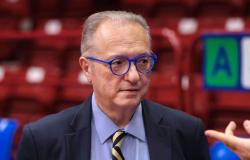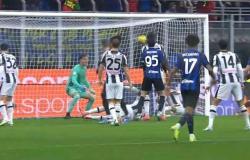Vladimir Putin at the end-of-year conference in Moscow – Reuters
Four and a half hours of speech and 76 questions (of which 14 on the war): an irrepressible and freewheeling Vladimir Putin held the traditional annual press conference, combined for the third time with the appointment that until before the war in Ukraine had taken place held in June. Putin, despite a bad cough about which he wanted to joke, saying that in this way “they will create new speculations about my health”, began by talking about the economic situation of the country. He explained that the national GDP grew by 8% in two years, more than that of the United States and Europe. That unemployment is at 2.3% and wages have grown by 9%. The Kremlin’s number one did not even flinch when asked about inflation, the real Achilles’ heel of the national economy. The price growth is certainly a “worrying sign,” he said, but it is motivated by the fact that Russians’ incomes are rising faster than supply.
Putin immediately moved on to talk about Ukraine, the topic to which he dedicated most of the conference and above all the one where he wanted to show off the greatest security. The first thought went to the Kursk region, invaded by Kiev’s forces last August. The president assured that the Russian forces are doing everything to take it back and that the Ukrainian forces will abandon it definitively, but without saying when or how. Regarding negotiations, for the president the sine qua non is that there is a legitimate government in Ukraine, the result of new elections. «If there are elections, if someone becomes legitimate, we will talk to everyone, including Zelensky. «If Ukraine really wants to take the path towards a peaceful solution, it can certainly do so. But we can only sign (peace agreements) with those who are legitimate. And the Rada (the Ukrainian Parliament) and the chairman of the Rada are legitimate.” An attempt, in full view of non-linear war, to influence Kiev’s foreign policy, at a time when the prime minister is weak, to try to turn the situation in his favor. Putin also spoke of a potential future meeting with Trump. “I don’t know when I’ll see him,” he said. He’s not saying anything about it. I haven’t spoken to him in over four years. I’m ready, of course. At any time. And I’m sure we’ll have something to talk about.” The Kremlin’s number one explained that Russia “is ready for negotiations, but needs the Ukrainians to be ready to compromise”. There is no question of a ceasefire, however. Russia is determined to conquer all objectives, and, above all, a truce could give the Ukrainians the chance to gather their strength and regroup. Even towards the perennial enemy, the United States, the tones are challenging, a real technological duel at a distance, which has a very precise name: Oreshnik, the deadly Russian missile which, according to the president, can hit up to 5,500 kilometers away, without being shot down by Western air defenses. And, speaking of the West, Moscow’s number one raised his voice, complaining about the fact that “practically all NATO countries are at war with us” and underlining, with a threatening note, that “the combat readiness of the Russian army is at the highest levels in the world.”
No concessions even on the objective weak points of the country. Putin glossed over demographics, explaining that Russia needs more girls, but that there are two regions (out of 85) where demographic rates are good.
The question about the assassination of General Igor Kirillov was dribbled over: the president admitted that “there were mistakes and we must improve”, and recalled that the secret services also made a mistake in not preventing the attack against Daria Dugina. There was also a thought for Italy, starting from the memory of Berlusconi, and adding that, “despite everything”, there is still “a mutual sympathy” with the country. Syria chapter: Putin puffed out his chest, confirming the alliance with Iran and sending messages to Israel. Moscow, in addition to the Assad family, evacuated 4,000 Iranian fighters from the two bases “at their request”.
The Kremlin’s number one rejected the thesis according to which Assad’s fall represents a defeat for Russia, and as for the bases he added: «Not if our bases remain in Syria. We need to think about it, because we need to see how our relations will develop with those political forces that now control and will control the situation in this country in the future. Our interests must coincide.” Certainly, for the president, Israel must withdraw from Syrian territory, defining it as “the greatest beneficiary” of the crisis in Syria.

